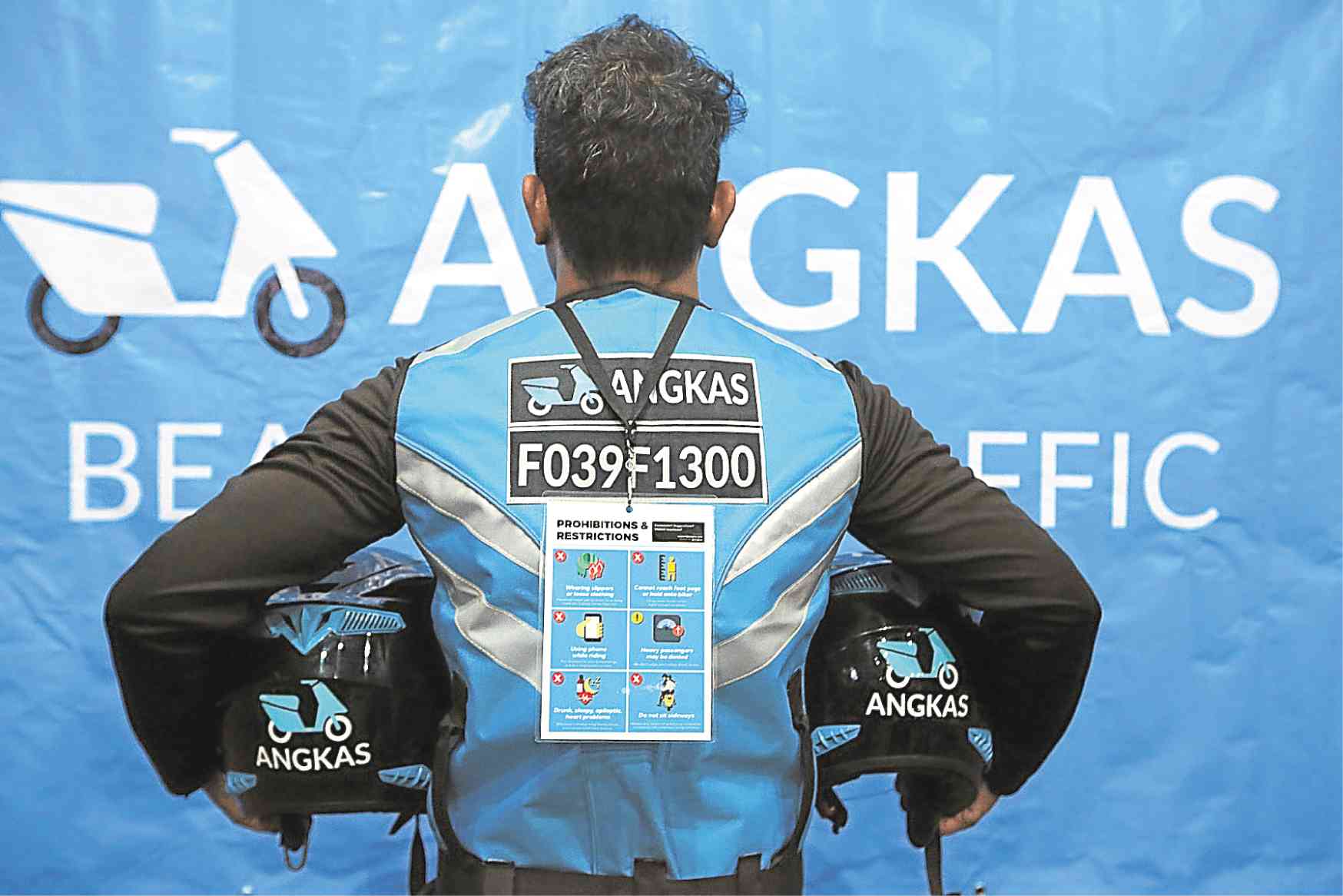Angkas gears up for 6-month dry run to prove critics wrong

SAFETY GEAR Angkas riders must wear special reflectorized vests that come with side straps for passengers, uniform helmets and laminated cards bearing safety reminders. —GRIG C. MONTEGRANDE
Anthony Velasco already heard the words of caution two months ago when he first underwent a training program for aspiring Angkas riders: Stay safe. Follow traffic rules. Be mindful of your passengers.
But on Thursday, sitting alongside hundreds of fellow bikers inside the motorcycle ride-hailing platform’s sweltering training complex, the reminders felt acutely urgent. “We have been praying for this for so long,” the 42-year-old Velasco said. “We were beginning to think ours was a lost cause.”
Unsafe for public use
He was referring to ongoing calls to legalize for-hire motorcycles, a move long resisted by transport regulators who considered the two wheelers unsafe for use as public transport.
But by next week, Velasco and his fellow riders would become the primary subjects of a gruelling six-month pilot test to prove their critics wrong.
Article continues after this advertisementThe dry run for motorcycle taxis, approved by Transport Secretary Arthur Tugade in May, will start after Angkas has retrained all 27,000 of its riders, according to its public affairs head George Royeca.
Article continues after this advertisementSome 12,000 riders have undergone training since June 6, said technical working group consultant Jobert Bolanos. But Angkas also has to comply with the exacting demands of the pilot test, including providing drivers standard, bright-blue reflectorized vests with waist handles; uniform helmets that bear its logo and laminated cards bearing safety reminders for passengers.
P50 weekly fee
All these are partially subsidized by Angkas, which declined to give the exact price for the safety gear. The rest will be shouldered by the riders, who will pay at least P50 weekly to cover the costs, said operations head David Medrana.
For Velasco, this was a small price to pay compared to the long-term benefits of finally being allowed on the road.
Passing the dry run itself will be the basis for amending Republic Act No. 4136, which currently prohibits two-wheeled vehicles from being used as public transport. The amended law, however, must then undergo approval by Congress.
“I was so worried when the government first tried to shut down Angkas’ operations,” said Velasco, who has two young children. “It’s such a huge loss for minimum wage earners like us. That’s why I hope that after this six-month test, they will see that we are safe and reliable.”
Under the dry run’s guidelines, Angkas should submit progress reports to the Department of Transportation and Land Transportation Franchising and Regulatory Board, including accident reports and traffic violations.